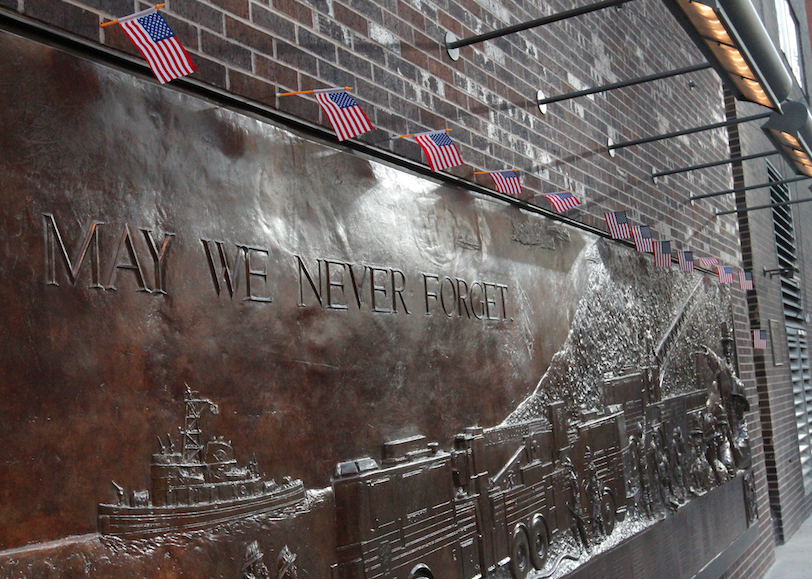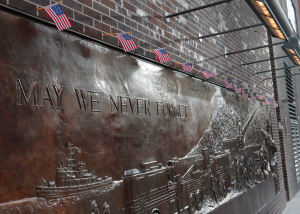
The war that follows you home
It’s never the same.
79-year-old veteran, Howard Marlow, sits at a retirement home resting his prosthetic while holding a weathered photo of himself standing next to Elvis Presley.
However, this photo, along with the others Marlow carries with him in a plastic Ziploc bag, represents more than a fond memory of being in the same motor pool as Elvis while abroad

in Germany. His photos also paint a picture of where the unfond memories originated—where he saw and did things that led to decades of PTSD.
Posttraumatic Stress Disorder (PTSD) is more common than one might think—and it entails much more than the stereotypes portrayed on TV. The Veterans Administration estimates that 57 percent of veterans from Operations Iraqi Freedom, Gulf War and Vietnam War are experiencing, or at some point have experienced, PTSD.
PTSD: The war at home
“The reason why I have PTSD is what I saw…and what I had to do.”
There is more to PTSD than the stereotype of a veteran jumping at the sound of a car backfiring. A wide range of side effects follow troops back home including depression, substance abuse, guilt, nightmares and violence.
“The reason why I have PTSD is what I saw in Vietnam and what I had to do,” Marlow said.”

Drugs and alcohol are particularly dangerous for post-deployed soldiers and veterans, as many turn to the substances for relief from their realities or try to forget what they have seen. As roughly half of active duty service men and women admit to binge drinking, studies from the National Institute of Drug Abuse suggest it may be more of a problem than what the general public is led to believe.
Marlow has suffered from PTSD ever since deployment, and said he struggled with alcoholism, night terrors and loneliness. Marlow said that it affected how he treated his wife, and added a strain on their marriage.
However, for Marlow it wasn’t just the PTSD that led to sleepless nights, but the lack of support from civilians upon returning home from Vietnam. Because of this scrutiny and judgement from the general public, Marlow and his wife stayed on base at Fort Benning as much as possible and was also a contributing factor in his decision to deploy for another tour.
‘Support our troops’—or lack thereof
Freedom looks very different to each American. For some, freedom is grilling hamburgers and hotdogs once a year on the fourth of July. It’s nailing a yellow ribbon to a tree in the front yard or sticking a magnet to the back of a car.

However, for many veterans, coming home isn’t synonymous with a support system.
“I think the people who are against the military mostly keep their mouths shut about deployed troops,” said Jonathon Carter, a Marine Corps veteran.
“And the ones who support them have more to say about the deployed troops than they do about the ones who are at home,” Carter said.
According to the Bureau of Labor Statistics, the total unemployment rate in the U.S. is 4.8 percent, whereas the unemployment rate of veterans in Georgia 8.8 percent according to Veterans Data Central. In addition to the unemployment rate being starkly higher, the rate of homeless veterans is also alarming. As of the latest studies from Veterans Affairs, it is reported that there are estimated to be 50,000 homeless veterans in the United States.
For a better understanding of what goes through the mind of a soldier post combat deployment, watch the video below from MiliSource, a military news YouTube channel.
If you or a loved one has served and needs help, there are resources available at the U.S. Department of Veterans Affairs.